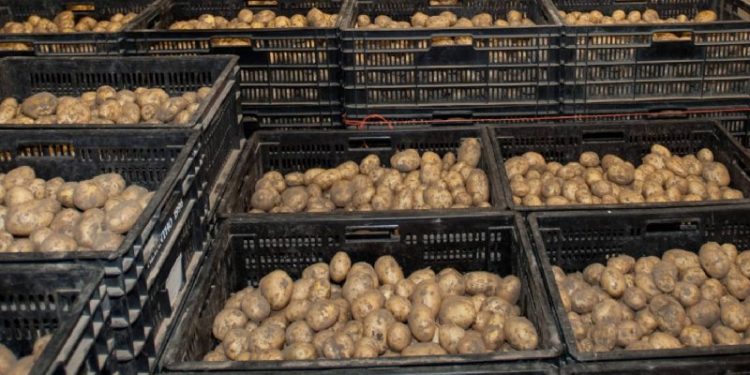In this article, we explore the recent delay in the first auction of early potatoes, highlighting the potential implications for farmers, agronomists, agricultural engineers, farm owners, and scientists. By examining the latest data from reliable sources, we delve into the reasons behind the delay and discuss the potential consequences for the potato industry and the broader agricultural landscape.
According to a recent report from Nieuwe Oogst, the first auction of early potatoes has been delayed by three weeks compared to previous years. This delay has raised concerns and garnered the attention of farmers, agronomists, agricultural engineers, farm owners, and scientists within the potato industry. The shift in the harvesting timeline can have far-reaching implications for the potato sector and the overall agricultural ecosystem.
Various factors could contribute to the delayed harvest of early potatoes. Climatic conditions, such as unseasonal weather patterns or extreme temperatures, can significantly impact the growth and maturation of potato crops. Prolonged periods of rain or unseasonal frosts can affect the development of tubers, leading to a delay in reaching the desired maturity for harvesting. Additionally, changes in cultivation practices, market demand, or logistical challenges may also play a role in altering the harvest timeline.
The consequences of a delayed harvest extend beyond the immediate impact on potato growers. It can disrupt supply chains, affecting processors, distributors, and consumers. With the delay in availability, market dynamics may shift, leading to potential price fluctuations and changes in consumer preferences. Furthermore, the delayed harvest may necessitate adjustments in storage and preservation techniques, as potatoes might need to be stored for longer durations before reaching the market.
In conclusion, the delayed first auction of early potatoes highlights the susceptibility of agricultural systems to external factors and the need for adaptability within the industry. Farmers, agronomists, agricultural engineers, farm owners, and scientists should closely monitor climatic patterns and proactively employ mitigation strategies to navigate such challenges. By fostering resilience, optimizing cultivation practices, and maintaining open lines of communication within the sector, stakeholders can work together to mitigate the potential impacts of a delayed harvest and ensure a stable potato industry.
Tags: early potatoes, delayed harvest, potato industry, agricultural resilience, climate impact, supply chain disruptions, cultivation practices, market dynamics.







